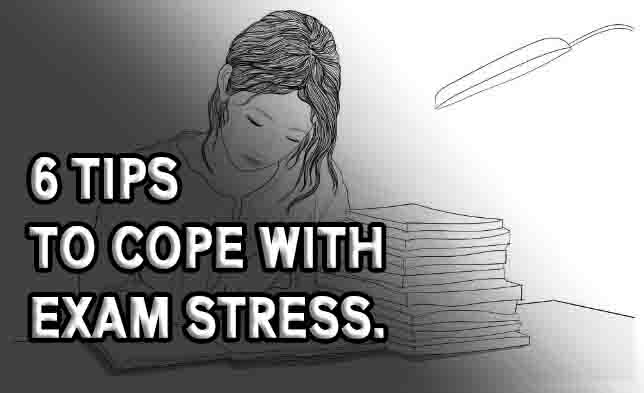There it is again, that familiar knot in the pit of your stomach signaling the impending arrival of exams. Although some may argue that stressing out before an exam can help, research strongly disproves this assumption. When stressed, our brains produce more stress hormone cortisol, which can impair our judgment and prevent us from thinking clearly.
Luckily for you, we have put together a bunch of practical tips to alleviate exam stress. Sticking to these tactics also means you will be more productive and have a great chance of acing your exams:
Table of Contents
1. Give Up Caffeine
We get it; giving up coffee during finals feels like an impossible challenge. After all, without your trusted companion caffeine, how on earth will you finish reading a three-hundred-page textbook overnight? However, caffeine is counterproductive. Being a stimulant, it only adds to your stress. Giving up caffeine also results in better sleep quality. However, giving up caffeine is not an invitation to move to other harsher stimulants. While having increased brain capacity during exams may sound appealing, do not turn to ADHD drugs or other stimulants. If you are curious about what these stimulants are and why you should avoid them, then check out stimulant information available online.
2. Declutter Your Study Space
Clutter puts unnecessary strain on the mind and slows down our ability to think, all of which contribute to stress. If you get rid of the additional post-it notes, unnecessary study materials, and stacks of papers cluttering your desk, you will find it much easier to focus on the task at hand. When you do not have to rummage through stacks of paper to find a single document, you can devote that time to other productive activities. You may keep a dustbin under or close to your study table to dispose of used paper, pens, and other supplies promptly.
3. Conduct Mock Exams At Home
Practice, and lots of it, is an effective technique to reduce the stress associated with taking exams. The reason being a major source of exam anxiety is the lack of preparation that comes from not knowing the nature of the questions in exams and the best ways to go about them.
To get started, find sample questions from previous exams to get a feel of what type of question have been asked in the past. If you cannot find any sample questions, think about the titles of the essays and other assignments your teachers have given you this semester. Particularly, try answering test questions on subjects you are less confident about.
4. Get Enough Sleep
It is stressful to hunker down in front of your textbooks for several hours. And when you are stressed, it can be harder to get to sleep. But that does not mean you should cut back on sleeping hours. Getting enough shut-eye is essential because it allows your brain to process information and preserve it for a long time. As a rule of thumb, teens typically require 8-10 hours of sleep per night.
Follow these guidelines to ensure that you always get a restful night’s sleep:
- Strive to wake up and go to bed at similar times each day. Refrain from sleeping in, even on holidays or weekends—this aids in regulating your circadian rhythm and improving your sleep.
- Do not use your phone or other electronic gadgets in bed. The blue light from electronic gadgets (including smartphones, tablets, computers, and televisions) is particularly disruptive to sleep.
- Unwind before you hit the hay. Disconnect from technology at least one hour before bedtime. Try distracting yourself with a good book, soothing music, or fond memories.
5. Be Kind To Yourself
Do not be so hard on yourself during exams. Remind yourself that this is the best you can do right now. Focus on the larger picture, and do not let a single lackluster performance derail your confidence. Putting undue stress on yourself has negative consequences. And we know it is a cliche, but fretting about things never helps.
Taking care of yourself emotionally during times of stress will help you push through those tough times. One way to do this is to take a moment to reflect on your many accomplishments. Writing down all the qualities you admire in yourself can be a productive and potentially therapeutic exercise. You can also put your studies on hold for a while to focus on self-care and spend time with those closest to you. If those close to you, such as parents or family members, are putting immense pressure on you, it may help to be honest about your skills and expectations. You could also confide in a trusted instructor about the stresses at home.
6. Prioritize Exercise
When under pressure, individuals tend to prioritize just the most essential tasks. It is because they mistakenly believe they have less time for anything else. This causes many students to forgo their regular exercise routines in the weeks leading up to their exams.
Quite the contrary, physical activity is one of the things that can make students more empowered to efficiently cope with exam stress and help them become successful in their academic pursuits. Cortisol is a hormone that is secreted when you are under stress. You can combat that and return to a physiologically normal state with some exercise.
Starting with a modest aerobic activity like a five- to ten-minute stroll will help ease anxious thoughts and feelings. It would be great if you gradually increase the duration over time. Yoga and deep breathing techniques are two more options, as they can help you feel more relaxed and improve concentration.
Conclusion
Almost everyone student, whether they acknowledge it or not, undergoes some level of stress when exam time rolls around. So you need to learn to rein in your feelings if you want to be able to focus and achieve your academic goals. Since exam season is just around the corner, you can count on these tips to keep stress at bay.

